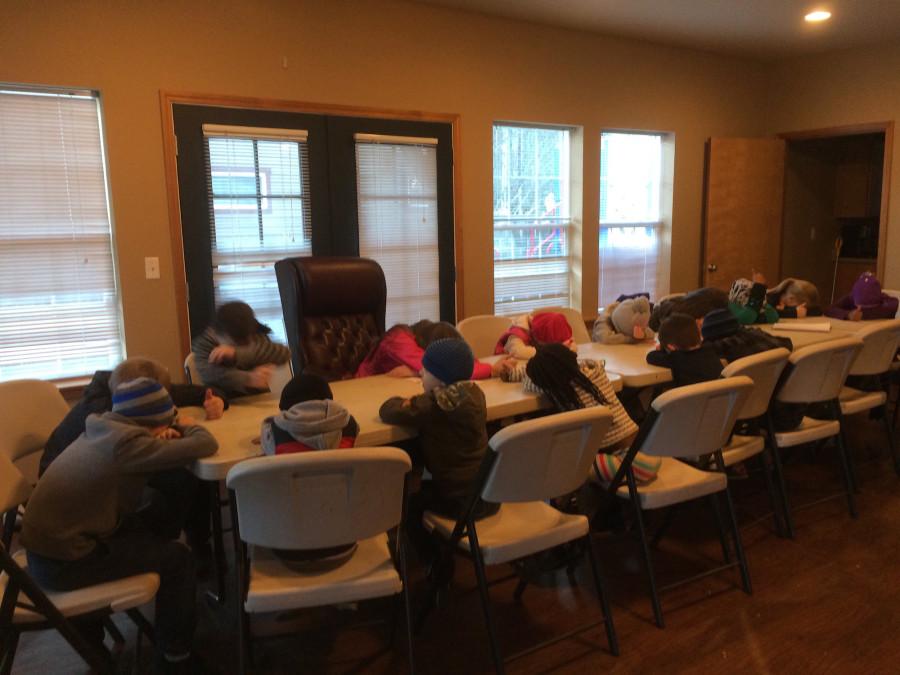Junior Year Service Project Impacts More Than Those Expected
February 24, 2016
Unlike service projects in the past, the junior year service project pertains to juniors’ religion class, calling for ten hours of poverty-related service. Once this service is completed, a small presentation is required, allowing fellow students to see their classmates’s hard work.
This work is not due until May, however, giving students the choice of when to start the project. Some students have chosen to put off this project, while others have gradually gained their hours over the last few months.
Jasmine Gloden is one example of someone who has already begun some of her service. As she is trying to accommodate for her sports-packed schedule in the spring, she currently participates in service at Lot Whitcomb alongside her siblings, Jaden and Jordan.
Mr. Kendrick recommends this sort of approach to the project, stating that “the best way to make the service enjoyable is to complete the service with a good friend.”
Jasmine reflects on her service commenting, “I’ve helped volunteer with the kids doing arts and crafts which is fun and the kids are so sweet when they ask you for help.”
Another example of someone who has participated in service for the junior project is Joe Parise. Joe volunteers at Northwest Housing Alternatives in Multnomah County, which as he explains it, is a “homework club for young kids who live in the [low-income] apartment complex.” Every Monday, Joe goes there to volunteer, regardless of the fact that he has already completed all of his service hours.
As proven by the previous two students, doing community service in advance can pay off.
Unfortunately, if students complete their hours right before the deadline, they might not be able to take away as much from this project. They may find it hard to balance out their spring sport schedule with service, or they may not be given the opportunity to continue service outside of school requirements.
However, the current Lenten season provides a perfect opportunity for students to participate in service. Mr. Kendrick explains the significance of this opportunity, stating that “by exposing our students to the realities of poverty in a compassionate way, we can foster an environment where we continue to serve those in need, no matter our calling in life.”






Andrea Dennis • Feb 28, 2016 at 1:11 pm
So glad that students feel empowered to help others eve with busy schedules, Keep up the good work!